(A good 10 minute read)
INTRODUCTION
We had an incredible opportunity to sit down with Production and Stage Manager Salomon Soloveichik and discuss some of the ins and outs of the production world. Salo has worked on events in Mexico and the US from EDC Mexico, Beyond Wonderland Monterrey, Bahidora, the Luis Miguel US tour and more.
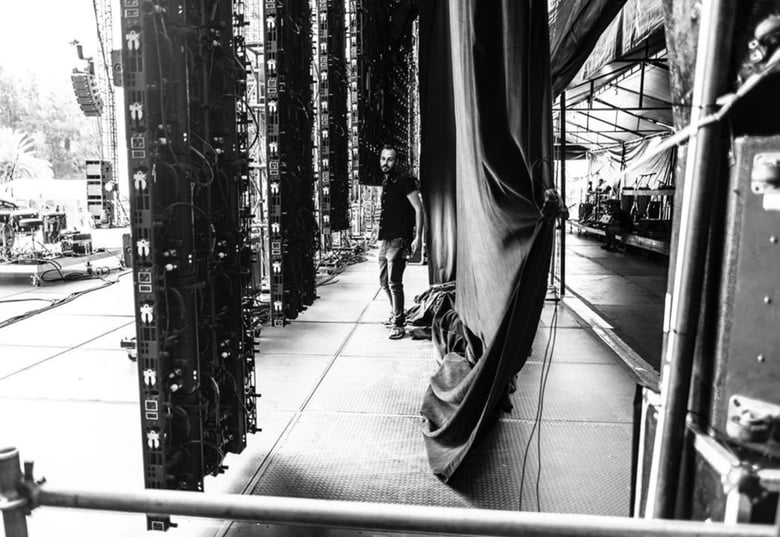 Stage Manger -Vive Latino 2020, Credit: Fernando Aceves
Stage Manger -Vive Latino 2020, Credit: Fernando Aceves
How did you get started working in the event industry?
I’ve always had a passion for events. My parents were involved in advertising and worked with big brands and events. That caught my eye when I was kid. Back in 2012 when I was 19, I met a guy who was the founder of a startup that focused on crowdfunding for concerts. I reached out, and told them I loved the idea and I wanted to join his team. I didn’t have any experience in the industry but I ended up becoming the first member of the team. I was in charge of talent buying and production. We brought bands to Mexico through crowdfunding from countries such as Russia, USA, UK, and Italy.. We created our own ticketing/crowdfunding platform. That gig helped me make some key contacts and become the Head of Production for Bahidora 2013. Bahidora’s first edition was a multi-day camping festival near Mexico City. I’ve been working on that festival for eight years now and it’s opened up doors for me. It became the foundation of my career.
What other events do you work with and what is your role with those events?
I’m currently a freelance Production Manager working on about 8-9 festivals per year. Some of those festivals are Bahidora, EDC Mexico, Beyond Wonderland Monterrey, Tecate Live Out, Vaiven Festival, amongst others. Sometimes I also wear the hat of a Stage Manager and Stage Production Coordinator at other festivals throughout the year. Last summer, I was the stage manager for Luis Miguel’s US Tour.
As a Production Manager, what are you focused on leading up an event or festival?
It really depends on the project. For example, if it’s an EDM festival, the artist is not a big part of the production design. The internal production team and the promoters decide what the stage is going to look like. We might get a first version of the design, get a quote on it, and then be like, "No, we can't spend that much money on video, let's take off a few sections of video," or we put it in the site plan, and find out the stage is too wide and shrink it down. Once the designs have been locked down, budgeted, and approved, we let the artist know what stage they are performing on.
If it’s a live music or rock festival, the artist is an integral part of the process. I need to review their riders, show designs, lighting plots, special needs and negotiate with headliners. I have to work with the artist’s team in order to have a lighting plot that works for them but also accommodate the other acts playing before or after them or the next day (in the case of a multi day event). The first step is getting in touch with the headliners to understand their needs and wants. That dictates what type of roof structure will be needed. I try to have this conversation as early as possible because it helps me make big picture decisions.
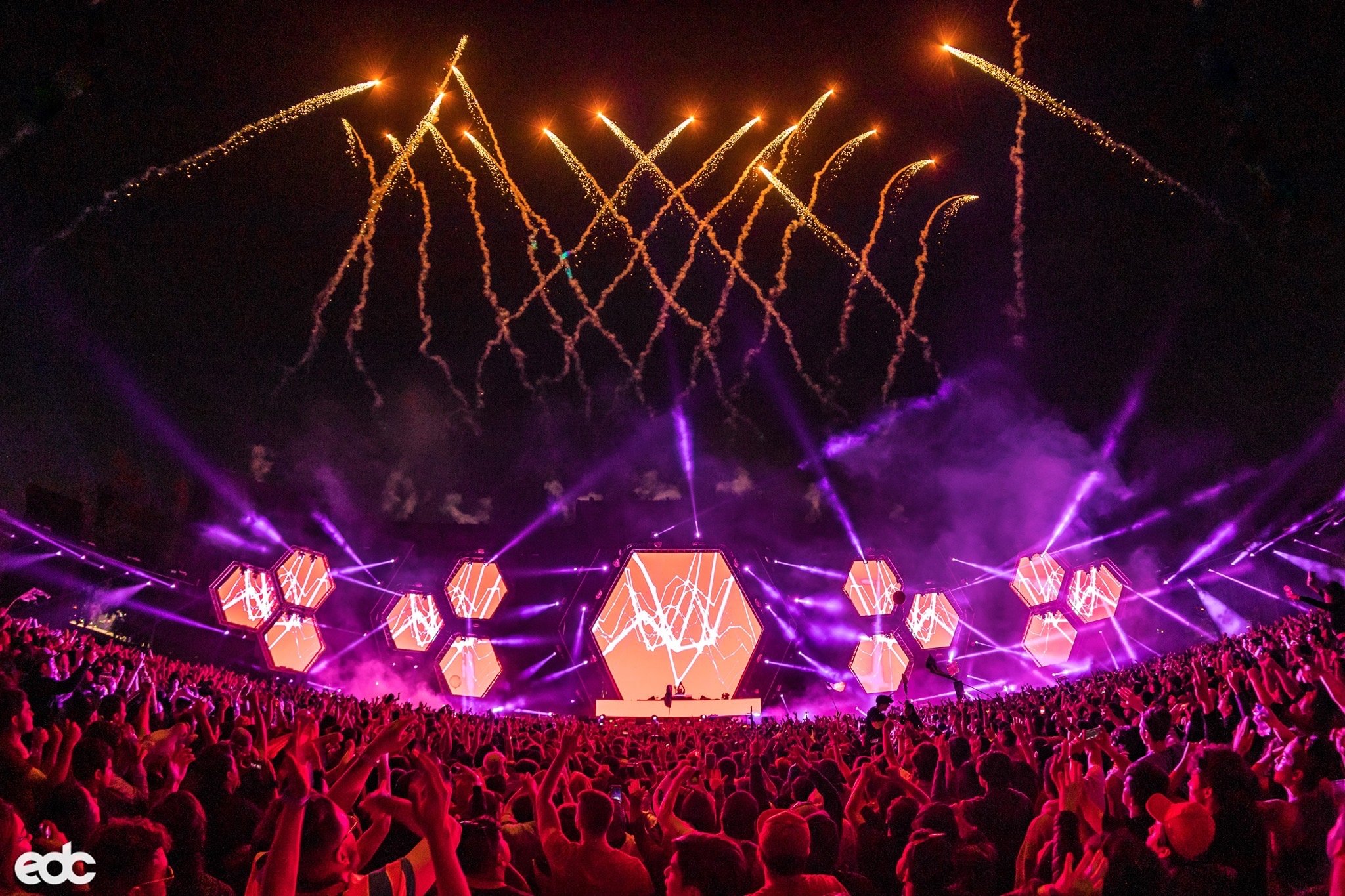 Production Manager - Circuit Grounds Stage - EDC México 2020, Credit: Insomniac
Production Manager - Circuit Grounds Stage - EDC México 2020, Credit: Insomniac
This may sound naive, but what is a lighting plot, what are you typically negotiating and do you have any outlandish stories about those negotiations?
The lighting plot is a drawing that reflects the lighting design of a specific artist. The importance of their slot on the festival’s lineup generally corresponds to the power of negotiation they have on how the festival lighting and video design ends up looking like. We won’t base the lighting design on the needs of a band that plays at 2PM, but we will work with the headlining acts to have a design that works for everyone with as little changes in the design as possible.
Back in March we were supposed to host The Strokes and Tame Impala at Pal’ Norte Festival in Monterrey. Due to COVID-19 we had to reschedule for September, but we were looking at a tough and long overnight shift between Day 1 and Day 2. We had seven hours to get The Strokes out, bring down the entire festival lighting rig, and hang 8 semi trucks worth of gear for Tame Impala before morning sound-checks with Alejandro Fernandez and Daddy Yankee. It was going to be an interesting night to make sure both of our headliners had their full festival lighting design.
Sorry for another simplistic question, but we have a number of event professionals outside of festivals that may not be familiar with the term “Advancing”. Do you mind describing in your own words what advancing is?
The process of receiving an artists rider (technical needs), exchanging emails and phone calls with the Production Managers of each act, coming up with a design and gear list that works for everyone and making sure we are all on the same page on what will go down during load in and on show day.
How important is the advance to your job as a production manager?
During the advance, I am more of a facilitator between departments. I actively try to encourage department heads to keep other departments in mind and how their responsibilities correlate with others during the advance process.
Most people see a festival stage on show day and see it as a whole. Most of the time departments such as rigging, lights, video, audio, backline, generators, staging, and barricades don’t think about what they’re doing affects another department. My job as a Production Manager is to keep everyone’s interest in mind and making sure everyone stays in their lane.
For example, if my lighting designer takes too long to draft up the total weights of the hung fixtures, that means I can’t 100% confirm that the roof system will be able to carry that load. This means I can’t confirm with my promoter how much money we will spend on the roof system, and that also means I can’t send the structural designs to the Fire Marshall for city approval. It’s a chain reaction all because the lighting designer was busy at another gig and took an extra week to send the information over. He might not be aware he’s holding up the process, and it's our job as Production Managers to make sure the ball never stops rolling.
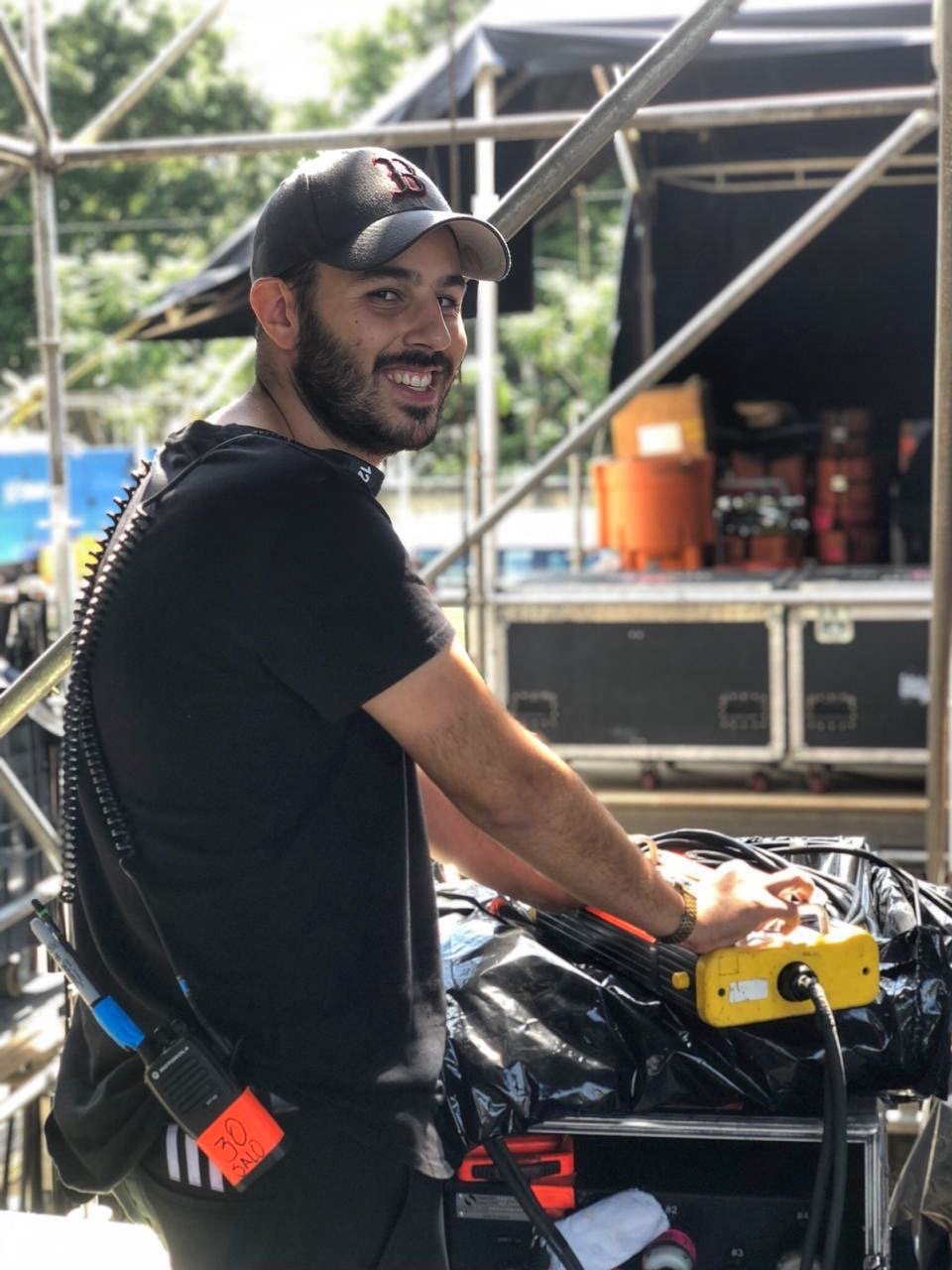
How do you keep the advance moving?
I communicate the chain of responsibility and the chain of events to everyone. I make sure the department heads understand their part in the machine. I try to remind them without being pushy. You don’t want to be the asshole yelling and pressuring people to get things done. People need to feel comfortable working with you and enjoy working with you, but also have enough commitment to stick to deadlines.
What are your top priorities as a Production Manager during Show Days?
My top priorities are safety, staying on schedule and staying on budget.
What tend to be the top challenges for the Production Manager during Show Days?
I have to be prepared to solve for the unexpected, whatever that is.
How do you like to structure your immediate team around you as the Production Manager and what would you say is your most critical resource?
Normally, I have a Production Coordinator assisting me. He/She will be my main support throughout the project and whenever I’m working on multiple projects at the same time. I try to have a Project Coordinator for each event to make sure I have someone fully focused on the nuts and bolts of that project.
Aside from this role, I also select a head for every main department such as audio, video, lighting and staging to make sure I have the needed expertise.
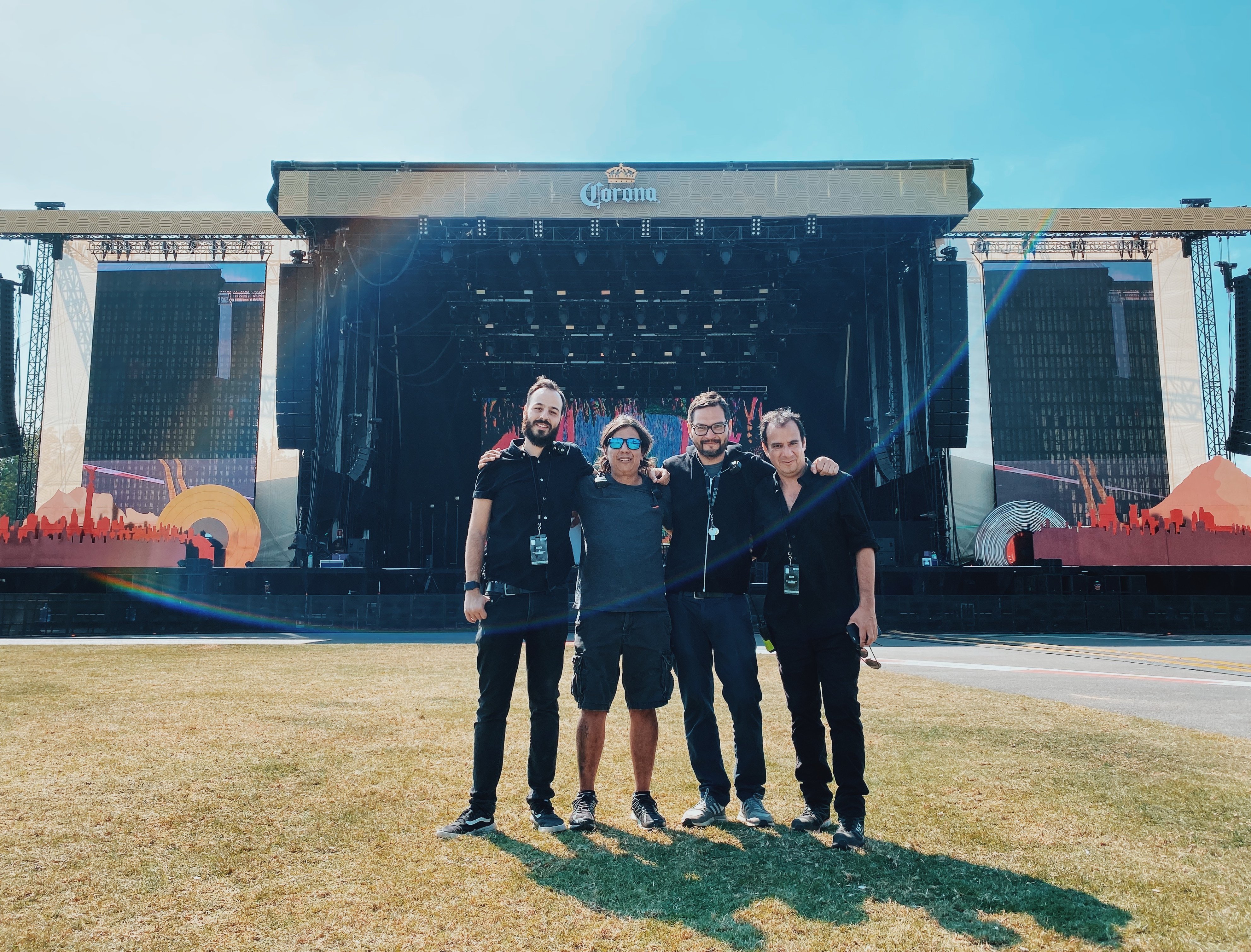 Production Coordinator - Corona Capital 2020
Production Coordinator - Corona Capital 2020
What does your load-out process look like?
A lot of people will start thinking about load-out the night before and it ends up being a mess. I try to avoid that and plan a load-out well in advance. I plan the load-out as I’m planning everything else. Most of the decisions you make during the load in need to take into consideration how you will get that stuff out. It doesn’t work to think about the load out once you are halfway through the load in.
The load out needs to include a sit down meeting focused on a post-mortem chat. Someone at the meeting needs to take notes and document what worked well and what didn’t. These notes become valuable the following year when you’re planning and making decisions.
Are there any manual processes that you would like to see automated or replaced with technology?
There are many variables that go into the emails I send out which results in a lot of manual work on my end. Some information is distributed to the crew of each stage, other information is sensitive and should only be shared directly with specific parties, and then there is general information that needs to be shared broadly to artists and staff. A more efficient way to send emails in bulk with the right content for each recipient would be great.
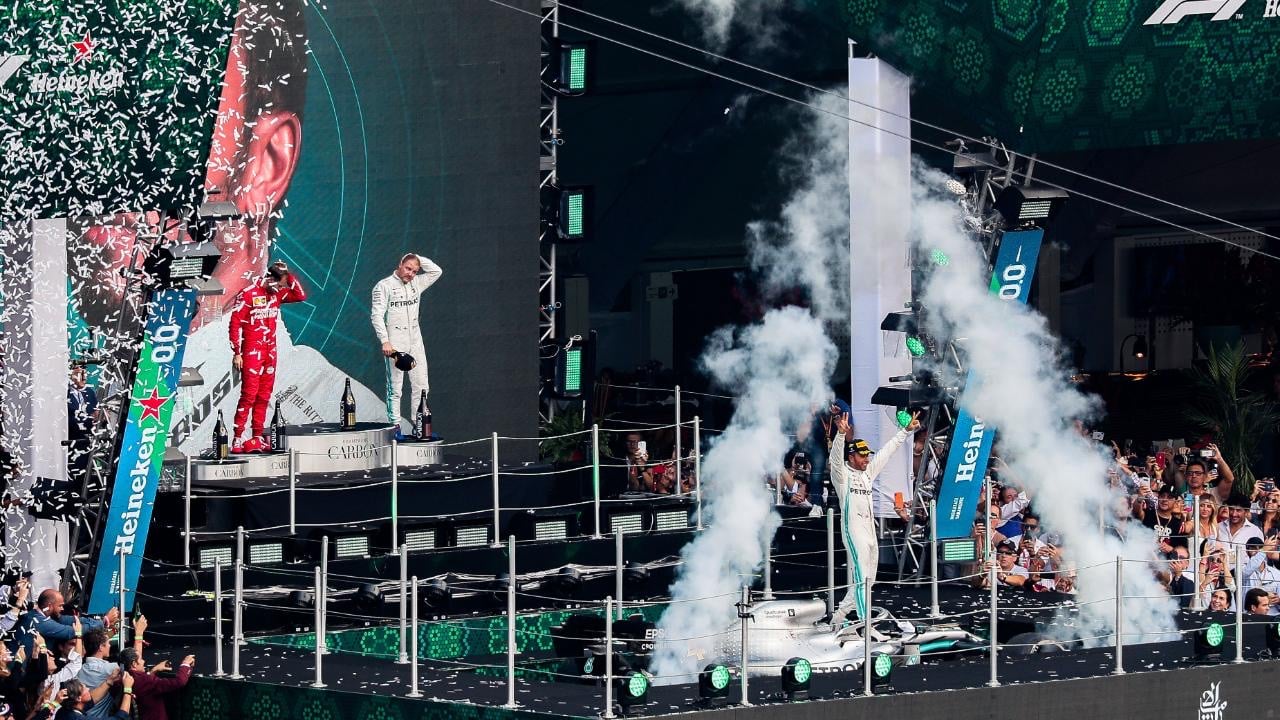
Podium Production Manager - FI Grand Prix - Mexico, Photo credit: FI (FOM)
What are the differences working at large festivals vs small festivals?
When you work with an organization as big as OCESA, it's a well-oiled machine. It’s very compartmentalized. Every department knows their responsibilities. For example, if I already agreed on a price with a vendor for the barricade, the purchasing department had to be part of that conversation. They approve it and authorize me to use that vendor. Once that happens, I send one email to the payment procurement department and I forget about it. The vendor knows that they're going to get paid, and I know that I don't have to follow up on that payment, because if they have any issues, they can reach out directly to the payment procurement department.
At smaller festivals the infrastructure of the company or the promoter is not as well-defined. I have to manage my responsibilities as well as follow through on every process until the end. I know there’s a big possibility of somebody dropping the ball because internal methodology is not as well established. I have to micromanage the process a bit more to make sure things are done. On the other side, when you’re working for a smaller event, there’s a more personal feeling. It’s a little more friendly and relaxed. I’m not fighting with paperwork half of my day and I have more say on the vendor selection process.
How do you think the event industry will change in the next 10 years?
If you were asking me this pre-COVID, I would say more festivals would move towards being experience based events. Mexico City can easily have a weekend with three different festivals in one weekend at different parts of the city. That’s happened in the past 2-3 years. The supply is exceeding the demand. In order to stand out, you need to focus on the experience more than the lineup. The lineup is a big part of the experience but the lineup by itself doesn’t cut it anymore.
Given the current situation, I think we’re going to see some shrinking in the industry. The bigger and more established festivals are going to see light at the end of the tunnel. Some of the smaller festivals might not be strong enough financially to come out of this. Worst case scenario, we might not see a festival in the next 12-18 months. It will make the festival experience more nostalgic and meaningful when we come out of this. People will appreciate them more.
 Stage Manager - Shakira Mexico City 2018
Stage Manager - Shakira Mexico City 2018
How do you think the experience of COVID-19 will most impact your role as the Production Manager, when things start to come back?
Budgets will shrink and we will need to be more strategic when deciding where to allocate resources. We will also have to adjust to new health and safety protocols or rules in order to keep the virus in check.
Given your current focus, do you have any thoughts or ideas as to how virtual can compliment the physical production of events when things start to come back?
I don’t think we’ll see a lot of live streams when social distancing measures relax and we’re able to attend concerts and festivals again. Right now, it's the best way for artists to connect with their fans but I don’t think the emotion of a live concert can be truly shared through a screen. Concerts are profoundly exciting because of the artist playing and because of the thousands of people around you pouring their collective energy into the moment. You can’t fake that over the internet.
What do you think are the absolute most important traits of a really successful production manager?
Leadership, organization, the ability to prioritize, and people skills.
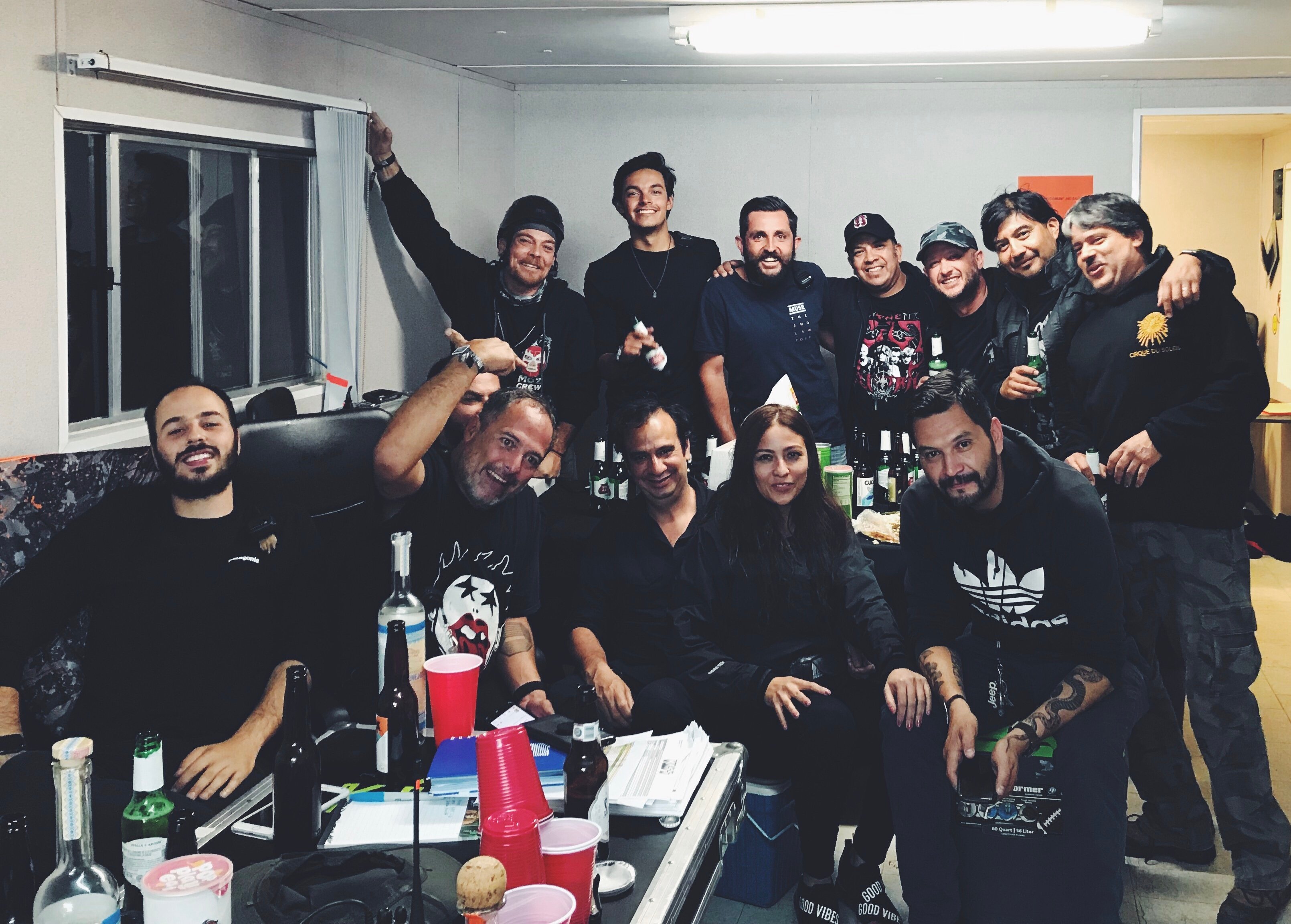
Production Coordinator - OCESA Production Crew for Domination Festival 2019
Are there any differences (if anything) between producing an event in Mexico versus an event in the United States?
The cultural differences between different cities and countries can be a difficult adjustment. The production side is similar and doesn’t change much. The power connector or voltage may be different but the lights and speakers are hung the same way. You see the differences in how we work and relate to each other. People skills are a must and it’s tricky to nail them when you’re working amongst a culture that’s not your own.
If you could interview someone you have worked with in the past, who would it be and what would you want them to talk about?
Rocko Reedy is the stage manager of U2 and he has some great thoughts on aliens. Ask him about that.
------
LENND, INC
Lennd is a next generation event management platform that simplifies operations and logistics so event teams can work smarter, move faster, and improve their ROI.
To learn why some of the most respected event teams trust Lennd to power their operations or sign up for a demo: www.lennd.com



